I am a book list professional.
I read, save, research, create, and share book lists. I own books of book lists.
And I’m concerned with what I’m seeing amongst my fellow Christians: a heavy leaning on old books for so many school-related booklists.
The fact is, if we submerge ourselves in old books, we run some serious risks.
#1: We risk committing the chronological fallacy.
The chronological fallacy says that it is not logical to prefer one item over another just because it is older/newer. There must be other reasons than simply the item’s age for us to choose it.
#2: We risk imbibing unbiblical philosophy and cultural attitudes.
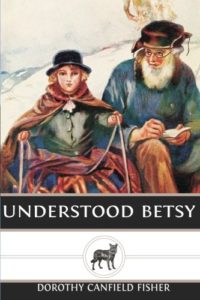

Of course, this is a risk with anything other than the Bible itself. But to spend excessive amounts of time with the late Victorians, for instance, means we are soaking in naturalist, Romantic, and Rousseau-ian philosophy. The child as the blank slate until the enriching, natural environment kicks in and makes it all better? (The Secret Garden, Understood Betsy, Rebecca of Sunnybrook Farm, here’s looking at you!) We often tend to read older books a bit less critically than newer ones—our guard is down. Every time period reflects different prevailing cultural philosophies and trends; older doesn’t automatically mean safer or more Christian.
In God’s marvelous, creative Providence, his Church is composed of people from all time periods, from all cultures, of all ages, races, colors, shapes, sizes. When we read almost exclusively about (or books by) a homogeneous group, we risk unconsciously adopting biased cultural attitudes. Even good older books often show racial prejudice that is unbiblical or treat characters with various disabilities differently than we might today.
#3: We risk alienating many of our fellow Christians.
When we promote books by and about one cultural group from one time period to the near exclusion of others, we are limiting our view of God’s image bearers: what about the Christians in our churches who look different from us? What about our neighbors who are really into sports? What about our own children who might be passionate about space and rockets? A book list composed almost exclusively of books from the 1850s-1950s will exclude a lot of people, both in terms of their actual representation and in terms of their interests and abilities.
#4: We risk missing out on the many ways in which God has gifted fellow humans.
Old books—while often wonderful literary specimens—are bound by book-making technologies of their day. More words is not necessarily a virtue; it might perhaps indicate a lack of revising technology (who wants to re-write by hand all of Moby Dick?). Similarly, modern picture books are not inferior because they are brightly colored. The technology to print books with multiple colors and shades has developed over the past century. Robert McCloskey did marvelous picture books in his day; Jerry Pinkney,* Raul Colón, and Melissa Sweet are all doing amazing picture books now.
*Sadly, Jerry Pinkney has passed away since this post was first written, but his books have been produced recently enough that we are keeping him in the listing of current/living illustrators.
#5: We risk fostering discontentment with the time and place in which the Lord has placed us.
We can find ourselves growing discontent with our modern lifestyles, clamoring for “a simpler time,” thinking our problems would be easier to bear if only life were not so modern and noisy. And yet, Ecclesiastes reminds us that there is nothing new under the sun. Our children are born into this particular time and place in God’s providence.
#6: We risk losing our children.
How will they know how to be discerning in their own time and place if we do not model that? How will we inculcate a love of reading if they are wildly interested in machines or the new planet just discovered or computers, and we keep throwing books their way that discuss the horse-and-carriage, Jonas Salk, or a lovely garden? Where will they see inspiration to be creative digitally if they only see picture books from 50 years ago? And what about the many significant national and global events of the past 50 years?
We Need Balance
Don’t throw out the old books; do balance your reading diet.
- Little House on the Prairie + The Boy Who Became Buffalo Bill, a fantastic 2015 release also set in 19th century Kansas.
- read about medical pioneers like Jonas Salk + read Breakthrough about the team (one white woman, one white man, one African American man) who pioneered heart surgery in “blue babies”
- The Velveteen Rabbit + The Miraculous Journey of Edward Tulane, a story about another rabbit who learns to love and be loved
- Winnie-the-Pooh stories + Finding Winnie, the 2016 Caldecott, about the real Winnie-the-Pooh.
- Want to inspire stick-to-it-ness in your kids? Read about Emmanuel’s Dream (a picture book) or The Boy Who Harnessed the Wind (Young Readers Edition; middle grades) as well as biographies about pioneering thinkers such as Einstein.
What are some of your favorite RECENT living books (published within the past 15 years)?
For the record, I do not mean to imply that the “old” books I specifically mention don’t have value, but even old good books need balance!
updated 3/2/16 to correct a typo and add a link.
Stay Up to Date!
Get the information you need to make wise choices about books for your children and teens.
Our weekly newsletter includes our latest reviews, related links from around the web, a featured book list, book trivia, and more. We never sell your information. You may unsubscribe at any time.
Support our writers and help keep Redeemed Reader ad-free by joining the Redeemed Reader Fellowship.
Stay Up to Date!
Get the information you need to make wise choices about books for your children and teens.
Our weekly newsletter includes our latest reviews, related links from around the web, a featured book list, book trivia, and more. We never sell your information. You may unsubscribe at any time.
FREE Bible Guide!
Get a guide to the Best Bibles for Children and Teens. Perfect for an Easter gift.
We'd love to hear from you!
Our comments are now limited to our members (both Silver and Golden Key). Members, you just need to log in with your normal log-in credentials!
Not a member yet? You can join the Silver Key ($2.99/month) for a free 2-week trial. Cancel at any time. Find out more about membership here.
23 Comments
Leave a Comment
You must be logged in to post a comment.


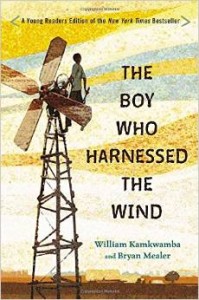
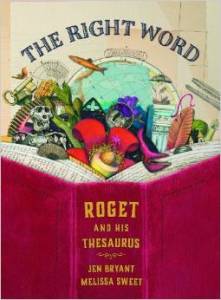
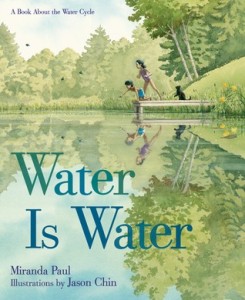
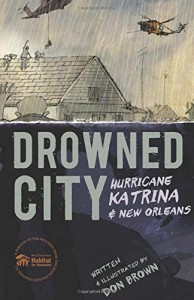

Yes! This is such a wonderful perspective! I love old books, but they aren’t enough on their own. And who would want to miss some of the beautiful new books being published! And how can our kids engage with the culture if we keep them ignorant of it? Balance is the key.
Great post!
Would you share your favorite new books (non-fiction) to be used for school subjects? I am constantly on the prowl for them, but am so often disappointed in layout, content, and above all, literary quality. I want balance, but struggle with this for elementary students in particular.
Emily,
Thanks for asking! this is Janie, and I’m replying instead of Betsy because we’ve been reviewing nonfiction in order to choose the best for the World Magazine children’s book section (coming next month!). Our favorites are Give me Wings by Kathy Lowinger (our favorite), The Boy Who Became Buffalo Bill by Andrea Warren, Drowned City by Don Brown, The Boys in the Boat (young reader edition) by Daniel Brown, The Boys Who Challenged Hitler by Philip Hoose, and Jump Back, Paul by Sally Derby.
Hello Betsy,
While I think I agree with your overall point, I can’t say I agree with any of your individual points, and I don’t understand why you use the word “risk” to describe them.
Note that my objection to a given point is mostly about what you wrote and how you wrote it more than what I might assume you meant.
Please try to look at what you wrote, how you wrote it, including tone, from the standpoint of someone who doesn’t know you, from the standpoint of someone who cherishes old books and shuns newer books for their prehigh-school children for any number of reasons, but not the least of which is likely the atrocious drivel some newer literature proves to be. Books have always included plenty of drivel, atrocious or otherwise, but older books still in print (or readily available) are unlikely to be drivel of any sort.
My suggestion is that your article just might come across to a person such as I describe as castigating, even insulting. I suspect you did not intend that.
Lonnie, I’m so sorry you misunderstood my tone. Thank you for taking the time to let me know! I’ll admit I chose words such as “risk” intentionally to get people’s attention and get them thinking. I also chose words like “submerge,” “school-related,” “excessive amounts of time,” and the like to show that I’m referring to the many education-related lists I see that are composed exclusively of older titles. I am in no way denigrating older titles, nor am I telling people to stop reading them! But we do our children a disservice if the only titles we expect them to read in an academic manner are older titles. We should also be teaching them how to evaluate new titles and how to discern the trends of our current culture. And here at Redeemed Reader, we seek to do just that: help equip readers to find the great books of any age and to read discerningly in light of the gospel.
Interesting thoughts! Thank you for writing this. My children tell me many of the old books are “boring” (and they are great readers!), so maybe this partly explains why they have not “connected” with many of the republished old books in the homeschool world.
I appreciate your perspective. I enjoy the older books because they are less dark than newer books for kids. I really appreciated the Sonlight Curriculum reading lists because they use the classics while at the same time introducing many high quality newer books. Even though my kids are grown, I still used their reading lists for my own personal pleasure and growth.
[…] The Six Risks of Reading Old Books “I’m concerned with what I’m seeing amongst my fellow conservative Christians: a heavy leaning on old books for so many school-related booklists. The fact is, if we submerge ourselves in old books, we run some serious risks.” […]
[…] The Six Risks of Reading Old Books “I’m concerned with what I’m seeing amongst my fellow conservative Christians: a heavy leaning on old books for so many school-related booklists. The fact is, if we submerge ourselves in old books, we run some serious risks.” […]
Perhaps, Janell, although I certainly don’t think we need to throw out all old books. Just find a balance. I’ve found in my own family that I can read aloud some of the older, slower titles successfully, and my children read both old and new books (their “free choices” certainly tip toward new, though!).
A classical education is steeped in the reading of old books because the best way to prepare for the future is to read about the past.
“We risk imbibing unbiblical philosophy and cultural attitudes.” I suppose that is true if you read a book uncritically but to guard against reading old books because you might encounter something different than what you believe is the wrong way to look at this. Iron sharpens iron. You certainly don’t want to study Sartre and nothing but Sartre all day and every day but the worry of “imbibing unbiblical philosophy” is, in my view, a dangerous way to approach any kind of reading.
The current state of our culture in America is in large part because we as Christians have failed to see the story unfold in our own time. And this story is far older than the Puritans…
You bring up some good points, Ted, and ones I don’t disagree with. I follow a classical education approach with my own children, but not all the books we read about the past are also books from the past. I would counter that we shouldn’t “guard against [new] books because we might encounter something different than what we believe” is true just like it is for older titles. For instance, the biography I mentioned about Buffalo Bill is a tremendously well written, engaging biography of a historical figure that was published in 2015. It also offers a wealth of information about Kansas and the Civil War. We can glean unbiblical philosophy from anything, as I mentioned in my post. I’m encouraging people to think about that, and realize that a steady diet of just one time period/type of book from any time period can lead to unconsciously picking up, say, racist attitudes or naturalistic philosophy or something else. Just because a book is on lots of education-related lists and is an older title doesn’t mean it can be read without discernment. And, just because a book is new doesn’t mean it’s not worth reading.
I invite you to poke around on our site to get to know us a bit. You’ll find that one of our main goals is to help readers sift the wheat from the chaff in the newest publications (there are some beautiful kernels of wheat in the midst of the plentiful chaff) as well as to reflect on some of the great titles of old. We are all about encouraging readers to read critically and discerningly no matter when a title was published. A quick search of “newbery buzz” in our search bar will show you some of the discussions Janie and I have had over new books we think the Newbery committee might consider. We also have a feature called “Retro Reads” where we look at books from the past. We’ve done read alongs with Pilgrim’s Progress and The Hobbit. Personally, I’ve discussed Othello, Robert McCloskey, and Beowulf along with the latest and greatest titles!
“Every age has its own outlook. It is specially good at seeing certain truths and specially liable to make certain mistakes. We all, therefore, need the books that will correct the characteristic mistakes of our own period. And that means the old books. All contemporary writers share to some extent the contemporary outlook – even those, like myself, who seem most opposed to it. Nothing strikes me more when I read the controversies of past ages than the fact that both sides were usually assuming without question a good deal which we should now absolutely deny. They thought that they were as completely opposed as two sides could be, but in fact they were all the time secretly united – united with each other and against earlier and later ages – by a great mass of common assumptions. We may be sure that the characteristic blindness of the twentieth century – the blindness about which posterity will ask, “But how could they have thought that?” – lies where we have never suspected it, and concerns something about which there is untroubled agreement between Hitler and President Roosevelt or between Mr. H. G. Wells and Karl Barth. None of us can fully escape this blindness, but we shall certainly increase it, and weaken our guard against it, if we read only modern books. Where they are true they will give us truths which we half knew already. Where they are false they will aggravate the error with which we are already dangerously ill. The only palliative is to keep the clean sea breeze of the centuries blowing through our minds, and this can be done only by reading old books. Not, of course, that there is any magic about the past. People were no cleverer then than they are now; they made as many mistakes as we. But not the same mistakes. They will not flatter us in the errors we are already committing; and their own errors, being now open and palpable, will not endanger us. Two heads are better than one, not because either is infallible, but because they are unlikely to go wrong in the same direction. To be sure, the books of the future would be just as good a corrective as the books of the past, but unfortunately we cannot get at them.”
-C.S. Lewis [Introduction to On the Incarnation: the treatise De incarnatione Verbi Dei]
[…] Read More […]
[…] However, we shouldn’t fall into the trap of allowing our kids to only read old books. Past generations have had their own faults, and I believe we should encourage our kids to read widely along the timeline. (Redeemed Reader has a wonderful post about 6 Risks of Reading Old Books). […]
I love the idea of pairing old books with new books. Although I love the classics, I agree with all of your reasons for reading newer books as well. Some of my favorites are:
Because of Winn Dixie by Kate DiCamillo, The Wednesday Wars by Gary D. Schmidt, The Penderwicks series by Jeanne Birdsall, and Wonder by R. J. Palacio.
Those are some great new books, Erika! I’m actually planning to read Wonder with my children this year. It’s a good springboard for discussing empathy! The Wednesday Wars and The Penderwicks are also favorites of mine.
Betsy, perhaps there would be fewer objections to this if “only” had been included in the heading, and no “the” to start it. For example, “Six risks of reading only old books” would imply right off that balance is needed and that there may be more risks, but these are six that you see at this time and are concerned about.
Although I read new and old books, I felt a little chastened as I read your list and immediately started looking for the C.S. Lewis quotation that Ted posted. There are some old titles that were all the rage during my 19 years of homeschooling that I never really used because they were preachy or not really good literature — similar to some of the popular Christian fiction that I’ve perused but never been able to read through. Nevertheless, I like and used in my teaching many old books. I think one value of old books is that they do show the perspectives of the authors, which reflect their times and don’t have our perspective of hindsight. It’s like using original source documents instead of a summary that sees any particular period through a different lens and considers factors that were unknown to the authors of the past. This is part of Lewis’ meaning, too, of course.
As you and Carolyn and others have said, I think balance in our reading — various authors, genres, time periods. etc — is very important, along with an immersion in the Word of God so that we can discern truth from error in whatever we’re reading. As C. H. Spurgeon said, “Visit many good books, but live in the Bible.”
Ooh, Robin, that quotation of Spurgeon’s is the best summary I can think of! Thanks for sharing. And you’re right–I’m urging for balance and encouraging educational lists, in particular, to be more balanced, not for us to stop reading old books! We use plenty of older titles as well as newer titles in my own household for homeschool reading and recreational reading both (we read through all of the Narnia Chronicles, The Jungle Book, and Mr. Popper’s Penguins this year, but we also read The Year of Miss Agnes (pub. 2000), The Miraculous Journey of Edward Tulane (pub. 2006), Archimedes and the Door of Science (pub. 2004) and plenty of other new titles as well).
Thanks for this fantastic perspective.
[…] ???? “The 6 Risks of Reading Old Books,” Redeemed Redeemer (Feb 29, 2016) […]
Yes, I like old and new books, but new books aren’t as well written as the old ones.The old books are challenging reads and one book I read that was new and well written was so slow and boring.
New school books Susan Wise Bauer;
Story of the World .
New fantasy books are really good, (good story,) but their not well written their OK.